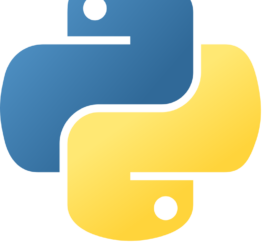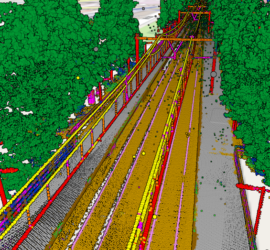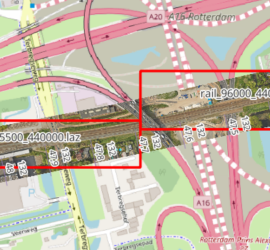This article is available in three languages, so make sure to choose your preferred language on the right. 2024 is a lustrum (five-year anniversary) year for me. And I’m not talking about the 70th birthday of […]
Blog
I started coding with Basic (on the Commodore 64, of course), but I consider myself mostly a C++ programmer. That’s the language I used throughout my time as university student and that I still use for […]
Okay, let’s be honest: Despite what the manufacturers of laser scanning equipment are trying to tell us, nobody really wants point clouds. They are huge blobs of unstructured and often noisy data with a low semantic […]
Linux/Windows dual boot works fine, but there are cases where this is not feasible. A computer may have to do most of its work under Windows because of certain application. When Linux is required, the Windows […]
When you have many point cloud files that are not tiled, it can be tricky to find the one file that covers a certain geographic area. One way to deal with this is to construct the […]
I’ve always been interested in design and actually aspired to become a car designer for several years. So when I came up with the idea for some alternative logos for Hai Performance to put on clothing, […]
Throughout the years Windows has received much criticism for security issues. As a result, default settings can be a bit too secure. One thing that always bugs me are the notifications that a file is potentially […]
I use the Windows Remote Desktop functionality all the time to connect to workstations. The Windows Remote Desktop client offers to store login credentials. Unfortunately, on a Pro version of Windows this doesn’t work due to […]
I’ve been using WSL for running Linux-only software and it works really well, but there are cases (especially when graphical output is needed) where a native Linux system is required. Lately I’ve taken advantage of the […]








